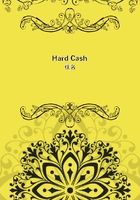
第238章
Richard stopped him, and said his attorneys were Messrs. Heathfield, in Chancery Lane; and was this the way Mr. Compton did business? serving a writ personally on a gentleman in weak health. So Colls, who can sneer in his quiet way, told him 'No,' but the invalid had declined to answer my letter, and the invalid had made a violent attack upon our client's person, avoiding his attorney, 'so, as his proceedings are summary, we meet him in kind,' says little Colls. 'Oho,' says Mr. Richard, 'your are a wit, are you? Come and have some luncheon.' This was to get him away from the weaker brother, I take it. He gave Colls an excellent luncheon, and some admirable conversation on policy and finance: and when he was going, says this agreeable host: 'Well, Mr. -----, you have had your bellyful of chicken and Madeira; and your client shall have his bellyful of law.' And this Colls considers emphatic but coarse.--I am, yours faithfully, "JOHN COMPTON.
_"P.S._--Colls elicited that no further attempt will be made to capture you. It seems some injudicious friend of yours has been writing to the newspapers. Pray stop that."On receiving this letter, Alfred bought another double pistol, loaded it, hired a body-guard of two prizefighters, and with these at his heels, repaired to 66 Pembroke Street. No enemy was near: the press had swept the street alike of keepers and police with one Briarian gesture. He found Julia and Edward in great anxiety about their father. The immediate cause was a letter from Mrs. Dodd, which Edward gave him to read; but not till he had first congratulated him heartily on the aegis of the press being thrown over him. "The _'Tiser_ has a leader on it," said he.
Mrs. Dodd's letter ran thus:--
"My DEAR DEAR CHILDREN,--I am coming home to you heartbroken, without your poor father. I saw an East Indian ship go to sea, and some instinct whispered, suppose he should be on board that ship! But, foolishly, I did not utter my thoughts: because they call these instincts women's fancies.
But now even Mr. Green thinks he is gone to sea; for the town has been ransacked, and no trace of him can we find. I met my cousin, Captain Bazalgette, here, and he is promoted to the _Vulture_ frigate, and sails to-day. I have told him all our misfortunes, and he has promised to overhaul that merchant ship if he comes up with her: but I _can see by the way his eye shuns mine_ he has no real hopes. His ship is the swifter, but he may pass her in the night. And then he is bound for New Zealand, not India. I told Reginald my poor husband's expression of face is altered by his affliction, and that he takes himself for a common sailor, and has his medal still round his neck. Our cousin is very kind, and will do all he can. God can protect my darling at sea, as He has ashore: and in His power alone have I any trust. Any further stay here is vain: my heart, too, yearns for my other treasures, and dreads lest whilst I am here, and because I am here, some evil should befall you too.
Expect me soon after this letter, and let us try and comfort one another under this the heaviest of all our many troubles.-- With sad heart, I am, both my darlings' loving mother and friend, "LUCY DODD"In the discussion of this letter Alfred betrayed a slight defect of character. He pooh-poohed the calamity: said David had now a chance, and a good one, of being cured: whereas confinement was one of the common causes of insanity even in sane persons. And he stoutly maintained that David's going to sea was a happy inspiration. Edward coloured, but deigned no reply. Julia was less patient, and though she was too loving and too womanly to tell Alfred to his face he was deceiving himself, and arguing thus indirectly to justify himself in taking her father out of the asylum at all, yet she saw it, and it imparted a certain coldness into her replies. Alfred noticed this, and became less confident and louder, and prodigiously logical.
He was still flowing on with high imperious voice, which I suppose overpowered the sound of Mrs. Dodd's foot, when she entered suddenly, pale and weary, in her travelling-dress.
Alfred stopped, and they all started to their feet.
At sight of Alfred she stood dumbfoundered a single moment; then uttered a faint shriek; and looked at him with unutterable terror.
He stood disconcerted.
Julia ran, and throwing her arms round Mrs. Dodd's neck, entreated her not to be afraid of him: he was not mad; Dr. Sampson said so. Edward confirmed her words; and then Julia poured out the story of his wrongs with great gushes of natural eloquence that might have melted a rock, and, as anticlimax is part of a true woman, ended innocently by begging her mother not to look so unkindly at him; and his ankle so sprained, and him in such pain. For the first time in her life Mrs. Dodd was deaf to her daughter's natural eloquence; it was remarkable how little her countenance changed while Julia appealed. She stood looking askant with horror at Alfred all through that gentle eloquent appeal. But nevertheless her conduct showed she had heard every word: as soon as ever her daughter's voice stopped, she seemed to dilate bodily, and moved towards Alfred pale and lowering. Yes, for once this gentle quiet lady looked terrible. She confronted Alfred, "Is this true, sir?" said she, in a low stern voice. "Are you not insane? Have you _never_ been bereft of your reason?""No, Mrs. Dodd, I have not.""Then what have you done with my husband, sir?"